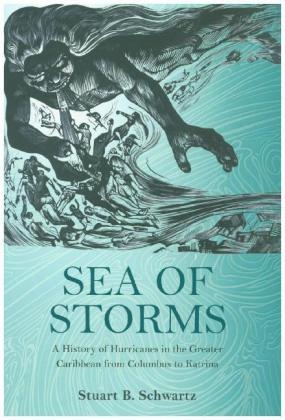Read more
Taking readers from the voyages of Columbus to the devastation of Hurricane Katrina, Schwartz looks at the ethical, political, and economic challenges that hurricanes posed to the Caribbean's indigenous populations and the different European peoples who ventured to the New World to exploit its riches. He describes how the United States provided the model for responding to environmental threats when it emerged as a major power and began to exert its influence over the Caribbean in the nineteenth century, and how the region's governments came to assume greater responsibilities for prevention and relief, efforts that by the end of the twentieth century were being questioned by free-market neoliberals. Schwartz sheds light on catastrophes like Katrina by framing them within a long and contentious history of human interaction with the natural world.
List of contents
Preface ix Acknowledgments xxiii Chapter 1. Storms and Gods in a Spanish Sea 1 Chapter 2. Melancholy Occasions: Hurricanes in a Colonial World 33 Chapter 3. War, Reform, and Disaster 70 Chapter 4. Calamity, Slavery, Community, and Revolution 110 Chapter 5. Freedom, Sovereignty, and Disasters 145 Chapter 6. Nature and Politics at the Century's Turn 192 Chapter 7. Memories of Disaster in a Decade of Storms 226 Chapter 8. Public Storms, Communal Action, and Private Grief 272 Chapter 9. Ancient Storms in a New Century 319 Abbreviations 339 Notes 341 Bibliography of Works Consulted 393 Index 427
About the author
Stuart B. Schwartz is the George Burton Adams Professor of History and chair of the Council on Latin American and Iberian Studies at Yale University. His many books include All Can Be Saved: Religious Tolerance and Salvation in the Iberian Atlantic World.
Summary
The diverse cultures of the Caribbean have been shaped as much by hurricanes as they have by diplomacy, commerce, or the legacy of colonial rule. In this panoramic work of social history, Stuart Schwartz examines how Caribbean societies have responded to the dangers of hurricanes, and how these destructive storms have influenced the region's histor
Additional text
"Imaginative, original, erudite, and—like everything Schwartz writes—a very good read."---Richard Price, New West Indian Guide
Report
"This is a magnificent book. In a breathtaking narrative spanning five centuries of hurricanes and their consequences, Schwartz accomplishes what no one has done before: a transnational history of the Caribbean region through the optic of one of the most widely shared of its historical experiences."--Francisco A. Scarano, coeditor of The Caribbean: A History of the Region and Its Peoples

